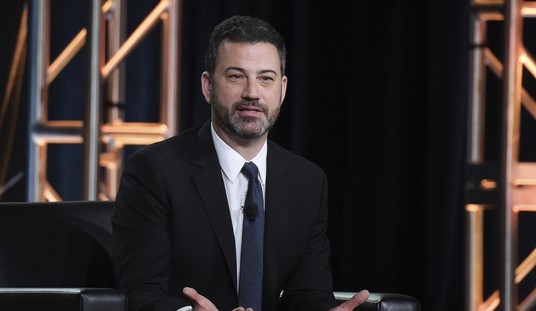Of the many and disturbing pathologies of Richard Nixon, none was greater than his anger at what John F. Kennedy could get away with but he himself could not. If Hillary Clinton does lose the nomination to Barack Obama, we should expect a shattered woman to grit her way through a pro forma party endorsement, all the while obsessing about how the nation’s prolonged honeymoon with Obama ended a few weeks too late to help her.
1. He plagiarizes his speeches (“Words, words, words.”)
It’s old news only to readers of this Boston Globe article, but as the blogosphere is today discovering, some of Obama’s famed turns of phrase were either stolen or taken with consent from Massachusetts Gov. Deval Patrick, another politician chided by his opponent in 2006 for his ability to win hearts and minds through mere “words.” Patrick wittily replied: “‘We hold these truths to be self-evident that all men are created equal’ — just words. ‘We have nothing to fear but fear itself’ — just words. . . . ‘I have a dream’ — just words. They’re all just words.”
Now here is Obama praising the Chicago organizer Saul Alinsky to the New Republic fewer than five months later: “Sometimes the tendency in community organizing of the sort done by Alinsky was to downplay the power of words and of ideas when in fact ideas and words are pretty powerful. ‘We hold these truths to be self-evident, all men are created equal.’ Those are just words. ‘I have a dream.’ Just words.”
Obama admired this peroration so much that he repeated it, again without attribution to Patrick, this past weekend. Here’s a YouTube comparing the two speakers:
As Joan Didion famously observed, when Americans say “No man is an island,” they think they’re quoting Ernest Hemingway*. And if “No Country for Old Men” is forever associated with the Coen brothers, then Cormac McCarthy — to say nothing of Yeats — should feel a mite cheated.
I’m sure old hands of the United Farm Workers, led heroically in the 70’s by Cesar Chavez, are wondering how their original slogan, “Si Se Puede” (“Yes We Can”) has somehow failed to endear Obama to Latino voters.
Pilfering other people’s words is a form of flattery and homage. But in a politician who both invites and welcomes comparison with dead historical figures, an unwillingness to discharge a rhetorical debt to a living one is — what’s the word? — unseemly.
2. His volunteers hang memorials to totalitarian mass murderers.
Credit again to the Boston Globe, specifically to editorialist Jeff Jacoby, who had the cleverest take on this image of a Che Guevara banner hanging on the wall in a Houston, TX office of Obama volunteers: “What would JFK do?” (Or as John Cole at Balloon Juice unironically took the opportunity to ponder, might now be the right time to rethink our Cuba policy?)
True, volunteers can’t be supervised to a man, but should it have taken two full days after this embarrassing disclosure for the “official” Obama campaign to call the banner “inappropriate”? And is that the best they could come up with to describe a man who installed concentration camps and hymned sport-killing as the greatest revolutionary activity?
3. His foreign policy guru travels to Syria to kibitz with murderous fascists.
As reported by Eli Lake in the New York Sun, Zbigniew Brzezinski, Jimmy Carter’s national security advisor and a consultant to Obama on Iraq, led a RAND Corp. delegation to Syria last week, the purpose of which was to meet with “high-level people in the region.” The Baathist regime in Damascus still dispatches jihadists to Iraq, has likely been responsible for more than half a dozen assassinations of Lebanese politicians in the last three years, and otherwise rules a police state complete with roving death squads. Despite the fact that Obama has pledged, as commander-in-chief, to open discussions with regimes exactly like Syria’s, his camp claimed not to have known about the Brzezinski trip until Lake told them. Yet even if this is true, state-controlled Cham News agency has happily described the meet-and-greet as an “important sign that the end of official dialogue between Washington and Damascus has not prevented dialogue with important American intellectuals and politicians.”
Which begs the question: Whom did they have in mind by “politicians”?
4. He flip-flops on public financing.
Back when he and John McCain were still long-shots, Obama promised that, if he made it to the general election and faced off against the Arizona senator, he’d agree to a publicly financed campaign. This has been the unofficial rule for presidential races since the Watergate scandal; it means that instead of using the money a candidate raised on his own, he dips into party coffers for TV spots, mail-out literature, etc. (Hillary made no such promise to adhere to this tradition, thinking that she’d be flush with cash and ready to use it come 2008.)
Well, now that Obama raised $100 million in 2007 and a whopping $32 million last month alone, he’s changed his tune. Here’s the Associated Press:
Obama spokesman Bill Burton on Thursday called public financing “an option that we wanted on the table,” but said “there is no pledge” to take the money and the spending limitations that come with it.
Obama told reporters on Friday that it would be “presumptuous of me to say now that I’m locking myself into something when I don’t even know if the other side is going to agree to it.”
The other side — McCain’s — is plainly still agreeing to it and has said that it will only renege if Obama does first. And as for keeping options on the table, this brings us to…
5. He’s wavering on his Iraq withdrawal plan.
Interviewed on Feb. 10 by 60 Minutes‘ Steve Kroft, who asked him if he would still implement his plan for withdrawing all U.S. troops from Iraq by 2009, “regardless of the situation? Even if there’s serious sectarian violence?”, Obama said: “No, I always reserve as commander in chief, the right to assess the situation.”
As it happens, however, this instance for a possibly weakened resolve to end the war categorically is itself an equivocation.
Months ago, President Bush invoked the ominous contingency of genocide as one salient reason not to implement any plan for troop withdrawal — to keep open, in other words, the executive ability to “assess the situation” as it progressed. In reaction to this, Obama said, “If that’s the criteria by which we are making decisions on the deployment of U.S. forces, then by that argument you would have three hundred thousand troops in the Congo right now-where millions have been slaughtered as a consequence of ethnic strife-which we haven’t done. We would be deploying unilaterally and occupying the Sudan, which we haven’t done.”
As George Packer put in it his Sep. 17 2007 New Yorker essay, “Planning for Defeat” — hardly an optimistic gloss on our options in Iraq — “The argument is shallow: by Obama’s reasoning, America doesn’t have an obligation to prevent large-scale massacres in a country it invaded and occupied, but it does have an obligation not to be hypocritical about it.” (Packer further concluded that the more honest rendering of Obama’s position implied that it is not in the U.S. interest to forestall a humanitarian catastrophe, which would be a “strategic footnote.”)
***
Bill Clinton not too long ago made a fool of himself by seething about the thick film of infamy attaching to his wife in every newspaper article or television broadcast about her. Why, he asked, was Obama so immune to scrutiny? The answer was simple: He was the presumed loser. Now that that’s changed — largely by virtue of his immunity — it may be time for Bill and Hill to sit back and finally, if belatedly, enjoy the show.
* The original version of this piece mistakenly identified the Didion reference as one to Bob Dylan. Special thanks to “old” Instaputz for spotting the error.
Michael Weiss is the New York Editor of Pajamas Media.









Join the conversation as a VIP Member